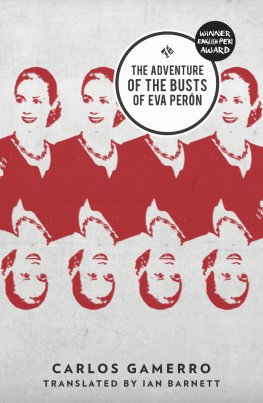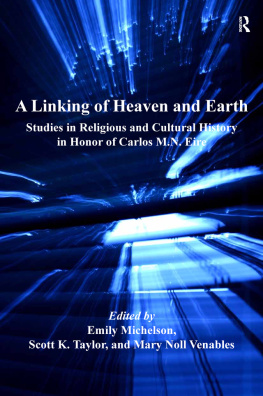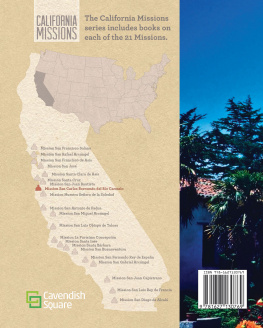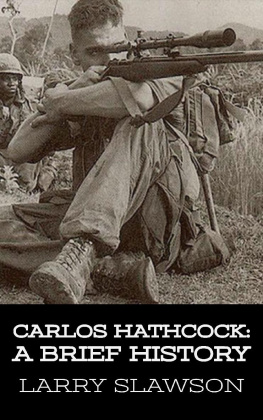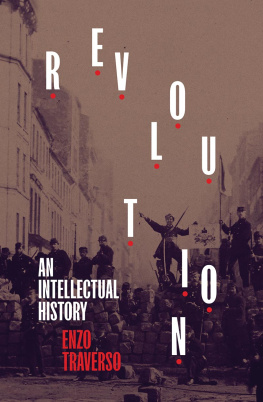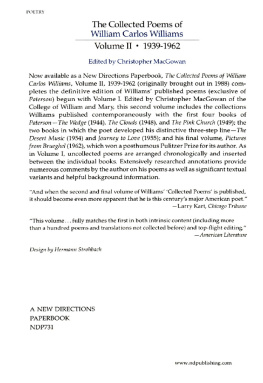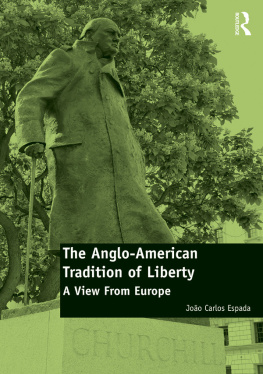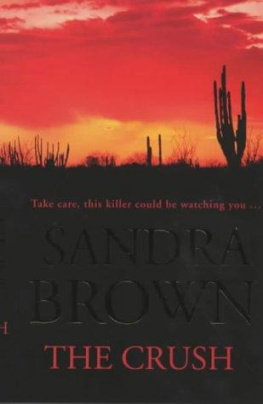Carlos Lozada - What we were thinking: A Brief Intellectual History of the Trump Era
Here you can read online Carlos Lozada - What we were thinking: A Brief Intellectual History of the Trump Era full text of the book (entire story) in english for free. Download pdf and epub, get meaning, cover and reviews about this ebook. year: 2020, publisher: Simon & Schuster, genre: Politics. Description of the work, (preface) as well as reviews are available. Best literature library LitArk.com created for fans of good reading and offers a wide selection of genres:
Romance novel
Science fiction
Adventure
Detective
Science
History
Home and family
Prose
Art
Politics
Computer
Non-fiction
Religion
Business
Children
Humor
Choose a favorite category and find really read worthwhile books. Enjoy immersion in the world of imagination, feel the emotions of the characters or learn something new for yourself, make an fascinating discovery.

- Book:What we were thinking: A Brief Intellectual History of the Trump Era
- Author:
- Publisher:Simon & Schuster
- Genre:
- Year:2020
- Rating:5 / 5
- Favourites:Add to favourites
- Your mark:
- 100
- 1
- 2
- 3
- 4
- 5
What we were thinking: A Brief Intellectual History of the Trump Era: summary, description and annotation
We offer to read an annotation, description, summary or preface (depends on what the author of the book "What we were thinking: A Brief Intellectual History of the Trump Era" wrote himself). If you haven't found the necessary information about the book — write in the comments, we will try to find it.
Carlos Lozada: author's other books
Who wrote What we were thinking: A Brief Intellectual History of the Trump Era? Find out the surname, the name of the author of the book and a list of all author's works by series.
What we were thinking: A Brief Intellectual History of the Trump Era — read online for free the complete book (whole text) full work
Below is the text of the book, divided by pages. System saving the place of the last page read, allows you to conveniently read the book "What we were thinking: A Brief Intellectual History of the Trump Era" online for free, without having to search again every time where you left off. Put a bookmark, and you can go to the page where you finished reading at any time.
Font size:
Interval:
Bookmark:
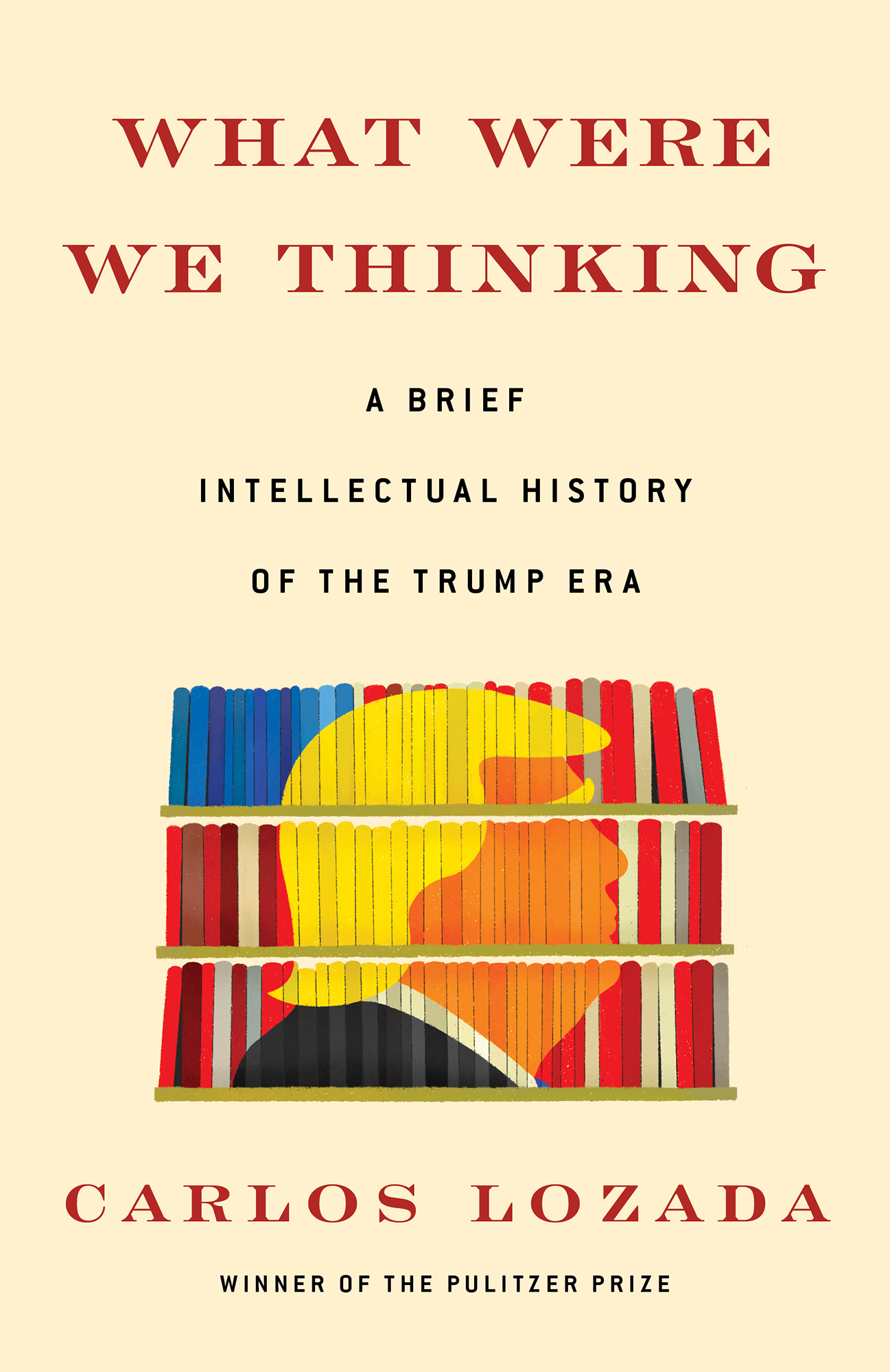

For Jamie, Fiona, and Finn
Many books have been written about me, some good, some bad. Both happily and sadly, there will be more to come!
Donald J. Trump, July 17, 2020
Early in Donald Trumps 2016 presidential campaign, I approached an editor at the Washington Post with what I considered an inspired proposal: What if, as the papers new nonfiction critic, I binge-read a selection of the candidates books published since the 1980sincluding Trump: The Art of the Deal, that foundational text of Trump Studiesand explained to our readers whatever I learned about him? Even ghostwritten books still reveal much about the purported authors self-image, much as all propaganda divulges its intentions. The editor liked the idea, but he urged me to hurry. It wasnt clear how long interest in Trump would last.
That was in July 2015.
Interest in Trump has lasted far longer than may have seemed possible, if interest comes close to describing the hold that Trump, as candidate and president, would exert over American public life. Reading his books did offer a preview of a world where bragging is breathing and insulting is talking, where repetition and contradiction come standard, where vengefulness and insecurity erupt at random, as I wrote at the time. Elsewhere, such qualities might get in the way of the story. With Trump, they are the story.
In the years since, Ive pored over books on the Trump era, trying to keep pace with the intellectuals, journalists, insiders, partisans, and activists who are grappling with the turmoil it has wrought. Ive read some 150 of them thus far, and even that is just a fraction of the Trump canon. One of the ironies of our time is that a man who rarely reads, preferring the rage of cable news and Twitter for hours each day, has propelled an onslaught of book-length writing about his presidency.
Dissections of the white working class. Manifestos of political resistance. Works on gender and identity. Histories and memoirs of race and protest. Surveys of populism, authoritarianism, and anger. Investigations of political extremism. Polemics on the future of left and right. Debates and proposals on immigration. Studies on the institution of the presidency and the fate of democracy. And, of course, plenty of books about Trump himselfhis values, his family, his businesses, and his White House.
There are still many more I want and expect to read, but this sample is enough to hazard some conclusions. These books, appearing between 2016 and 2020, have dominated the bestseller lists. As a publishing phenomenon, they have succeeded. Less so, I fear, as an intellectual project. The best of these works combine urgency and insight, timeliness and timelessness. But too many books of the Trump era are more knee-jerk than incisive, more posing than probing, more righteous than right, more fixated on calling out the daily transgressions of the man in the Oval Officethis is not normal!than on assessing their impact. They are illuminating in part because they reflect some of the same blind spots, resentments, and failures of imagination that gave us the Trump presidency itself, and that are likely to outlast it. Individually, these books try to show a way forward. Collectively, they reveal how were stuck.
Among the presidents opponents, the response to Trump was born in disdain for his campaign, aversion toward his supporters, shock at his victory, and revulsion against his policies. Essay anthologies quickly sprouted, with activists, novelists, and politicians wallowing in their election night woes and calling for resistance to the new order. When expletives and all caps crowd out discernment, and when high-mindedness veers into dogmatism, the resistance lit can be among the least inspiring subgenres of this era.
On the right, Trump deepened a breach between opportunists and absolutists. The former offer books pandering to their new leader, ignoring or reveling in his more sordid traits and undemocratic impulses, captive minds seeking to retrofit Trumpism into something approaching a coherent ideology. The latter, meanwhile, publish hardcover breakup letters to their party and movement, without realizing that sometimes, when the love is gone, it really is you and not them.
Scribes and sociologists descended upon every small-town diner and rusted factory between the coasts, hoping to divine the mind of the white working-class Trump voter, seeking to adjudicate which shorthand motivation, whether economic deprivation or racial prejudice, explains the enduring devotion of Trumps base. The least convincing of these works insist on one answer alone; the most vivid are those that show how the two impulses can be intertwinedbecause people are human and humans are complicatedand how, rather than pushing voters toward a particular candidate, such feelings can leave them believing that politics has no place for them at all.
From the academy, packed bookshelves emerged to warn that Trump was killing off the American experiment, with the precise cause of death determined by each writers expertise. Political scientists warned of the death of democracy. Philosophers and literary critics worried about the death of truth. Internationalists fretted over the death of global trade and alliances. Historians, meanwhile, shook their heads and explained to anyone who would listen that wed all been here before.
Donald Trump may not read many books (Actually, Im looking at a book, Im reading a book, Im trying to get started, he replied in 2017 when a Fox News host asked him about his reading habits), but he understands their cultural and political allure. He has published more than a dozen books, and he launched his campaign in 2015 declaring that we need a leader that wrote The Art of the Deal. That 1987 memoir, whose true writer has since expressed regret for his role, is as much a part of Trumps image as The Apprentice or Trump Tower, maybe more. The president is certainly aware of the books covering him and his administration, publicly praising or trashing them depending on whether he thinks they are nice to himno matter that his attention boosts their sales and reach either way.
Critics scoff at the presidents literary indifference, often comparing it to his predecessors reverence for the written word; Barack Obama receives rapturous coverage every time he promotes a new list of titles purchased from the local indie shop. To the extent that Trump relies on books at all, it is to confirm his instincts rather than to challenge his assumptions; to ratify, not edify. (In 2015, for instance, his initial campaign remarks insulting Mexican immigrants may have been partially inspired by Ann Coulters Adios, America! The Lefts Plan to Turn Our Country into a Third World Hellhole, which the candidate had hailed as a great read just three weeks earlier.) Yes, I would be delighted if our president read more books, even more so if they were good ones. But of the many concerns I have about Trump, a thin TBR pile is not foremost among them. Id settle for him reading his briefing materials. Or the Constitution.
The books Americans buy, debate, and prize usually say something about how they feel about their prospects, their politics, and their leadership. Hillbilly Elegy, J. D. Vances bestselling 2016 memoir, appealed to readers hoping for insight on the motivations of the communities backing Trump, even if the book never even mentions him. After the candidate won and took office, George Orwells
Font size:
Interval:
Bookmark:
Similar books «What we were thinking: A Brief Intellectual History of the Trump Era»
Look at similar books to What we were thinking: A Brief Intellectual History of the Trump Era. We have selected literature similar in name and meaning in the hope of providing readers with more options to find new, interesting, not yet read works.
Discussion, reviews of the book What we were thinking: A Brief Intellectual History of the Trump Era and just readers' own opinions. Leave your comments, write what you think about the work, its meaning or the main characters. Specify what exactly you liked and what you didn't like, and why you think so.

